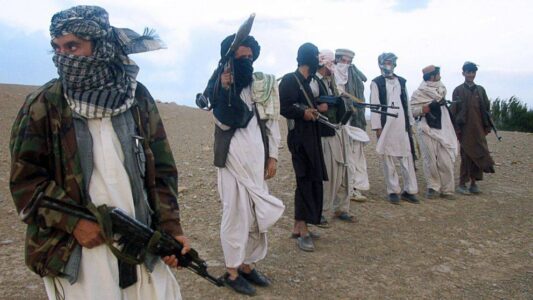
Taliban is embarrassed heavily by Islamic State terrorist attack and girding for civil war
The terrorist group Islamic State-Khorasan claimed responsibility for the dual suicide blasts outside Kabul’s airport Thursday that killed 13 U.S. service members and at least 90 Afghan civilians. ISIS-K and the Taliban, which controls Kabul outside of the airport, are sworn enemies with a long history of battling each other.
And Thursday’s ISIS-K attack, “with its signature blend of complexity and cruelty,” was widely seen “as a reminder to both the Americans and the Taliban that, no matter who was in the presidential palace, Afghanistan would remain contested,” The Washington Post reports.
The Taliban had reached agreement with the U.S. to “control security outside of the gates,” retired U.S. Gen. Mark Kimmitt tells BBC News. “For the Taliban to fail in that mission is an indicator of what’s to come.” They are trying to prove to the world they can govern responsibly, he added, “and if they have failed in this simple mission — they obviously have been embarrassed heavily.”
ISIS-K took hold in Afghanistan in 2015, and even as the Taliban fought the U.S. with the remnants of al Qaeda, “it has been been waging a separate but parallel war against its rival Islamist group,” The Wall Street Journal reports. Starting in 2017, the Taliban, U.S. military, and the U.S.-backed Afghan forces routed ISIS-K. But “as with other Islamic State affiliates, ISIS-K has stayed nimble and able to regroup after military blows,” the Post reports.
“ISIS-K’s main goal right now is to stay politically relevant, disrupt efforts to stabilize the country, and also undermine the Afghan Taliban’s credibility” through high-profile terrorism, Amira Jadoon, an ISIS-K expert at the U.S. Military Academy, told the Post. “Without U.S. support or Afghan security forces,” she added, “I don’t think we can realistically expect the Taliban to constrain ISIS-K” alone.
“The Taliban is overwhelmed,” Bruce Hoffman, a counterterrorism expert at Georgetown and the Council on Foreign Relation, tells Politico. “They are very effective at bullying and victimizing civilians, but they are incompetent at battling groups that look like themselves.”
“Abu Muhammad,” an Afghan militant with ties to the Taliban, told the Post that Thursday’s attack was meant to both disrupt coordination between the Taliban and U.S. military and serve as “a punishment also for all those who want to leave Afghanistan to go and live in the West.” He added that “we are all preparing for the possibility of a long war.”
Source: The Week





